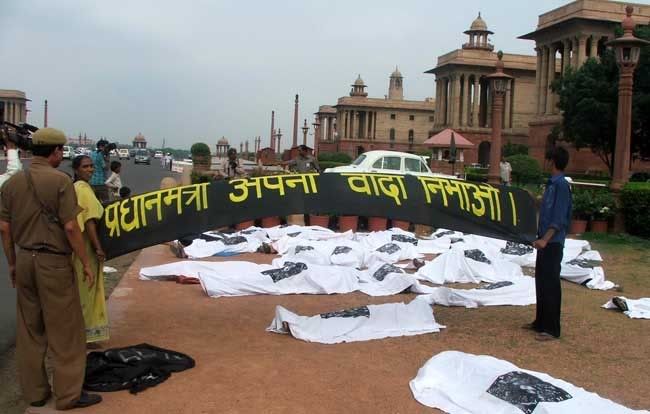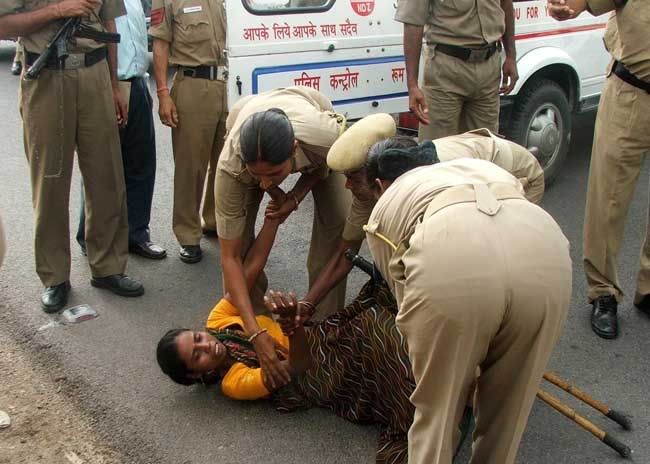

What Can YOU Do?
You can start by going to this website below and faxing the Indian Prime Minister Office about how troubled you are by the events of this tragedy.
http://www.boston4bhopal.org/write_fax.php
For more information please read below about the facts of Bhopal.
What Happened in Bhopal
On December 3rd, 1984, thousands of people in Bhopal, India, were gassed to death after a catastrophic chemical leak at a Union Carbide pesticide plant. More than 150,000 people were left severely disabled - of whom 22,000 have since died of their injuries - in a disaster now widely acknowledged as the world’s worst-ever industrial disaster.
More than 27 tons of methyl isocyanate and other deadly gases turned Bhopal into a gas chamber. None of the six safety systems at the plant were functional, and Union Carbide’s own documents prove the company designed the plant with “unproven” and “untested” technology, and cut corners on safety and maintenance in order to save money.
Today, twenty years after the Bhopal disaster, at least 50,000 people are too sick to work for a living, and a recent study in the Journal of the American Medical Association confirmed that the children of gas-affected parents are themselves afflicted by Carbide’s poison.
Carbide is still killing in Bhopal. The chemicals that Carbide abandoned in and around their Bhopal factory have contaminated the drinking water of 20,000 people. Testing published in a 2002 report revealed poisons such as 1,3,5 trichlorobenzene, dichloromethane, chloroform, lead and mercury in the breast milk of nursing women living near the factory.
Although Dow Chemical acquired Carbide’s liabilities when it purchased the company in 2001, it still refuses to address its liabilities in Bhopal - or even admit that they exist. Till date, Dow-Carbide has refused to:
1) Clean up the site, which continues to contaminate those near it, or to provide just compensation for those who have been injured or made ill by this poison; 2) Fund medical care, health monitoring and necessary research studies, or even to provide all the information it has on the leaked gases and their medical consequences; 3) Provide alternate livelihood opportunities to victims who can not pursue their usual trade because of their exposure-induced illnesses; 4) Stand trial before the Chief Judicial Magistrate’s court in Bhopal, where Union Carbide faces criminal charges of culpable homicide (manslaughter), and has fled these charges for the past 15 years.

Amnesty International estimates that 22,000 people were gassed to death in Bhopal, including thousands of women and children. Today 30 people die each month from the effects of their exposure, and the death toll from Dow-Carbide’s chemical violence continues to rise. (6) More than 120,000 people are critically ill and in desperate need of medical care, and thousands of children have been born with birth defects, learning disabilities, and stunted growth. Even the breast milk of nursing mothers has been contaminated, and the chemical terror won’t end until Dow cleans up its killing fields.
Bhopal is the corporate crime par excellance – quite literally. Long before the Enron or Worldcom scandals, the CEO of Union Carbide, Warren Anderson – and the Union Carbide Corporation itself – were charged with culpable homicide in India after Bhopal. Both the corporation and its former CEO are considered “fugitives from justice” by the Indian Government, and Warren Anderson lived as a fugitive, in hiding, for more than a decade. They remain fugitives today.
Bhopal began as a classic instance of corporate double-standards: Union Carbide was obliged to install state-of-the-art technology in Bhopal, but instead used inferior and unproven equipment and employed lax operating procedures and maintenance and safety standards to those used in its US 'sister-plant'. The motive was not simply profit, but also control: the company saved $8 million, and through this deliberate under-investment managed to retain a majority share of its Indian subsidiary. On “THAT NIGHT,” none of the plant’s safety systems - six in all - were operational, and the plant siren had been turned off.
Following the massacre, Bhopal became a test case for corporate accountability. While the world anticipated an exemplary punishment for Carbide - such as ownership of the $10 billion corporation's assets being transferred to the survivors - US courts allowed Carbide to take the case to India, far away from its asset base.
Confused by Carbide's PR/BS?
"Sabotage"
"Indian Managed"
"No Liability"
Learn the TRUTH behind Carbide's lies. Visit www.bhopal.net/bhopal.com
There, the company used a strategy of delay, denial and disinformation. It contested the legitimacy of courts it had asked to be tried before. It denied it was a multinational. It claimed the gas was not ultra-hazardous. It blamed an unnamed saboteur. It appealed court orders for humanitarian relief, while professing its concern for the victims.
The strategy worked. Once Union Carbide and the government of India had hatched an out-of-court settlement, hazardous enterprises everywhere had the go-ahead to carry on business as usual, safe in the knowledge that the price for industrial massacre had been set at just 48 cents a share.
Today, they’re not so sure. Setting a legal precedent, in March 2004 the Second Circuit Court of Appeals – second only to the US Supreme Court – ruled that Union Carbide can be held accountable in US courts for environmental cleanup and medical monitoring costs in Bhopal, a world away. Dow has been summoned to appear in Bhopal to explain why it continues to harbor its subsidiary, a fugitive, from trial, and its Indian assets risk seizure. And Dow-Carbide has the dubious honor of becoming the first corporation ever indicted for crimes against human rights by Amnesty International. Bhopal remains a test case for corporate accountability: one it’s possible for us to win, and which we can’t afford to lose.
Source: http://www.studentsforbhopal.org/
The Bhopal Chemical Disaster: Twenty Years Without Justice

No comments:
Post a Comment